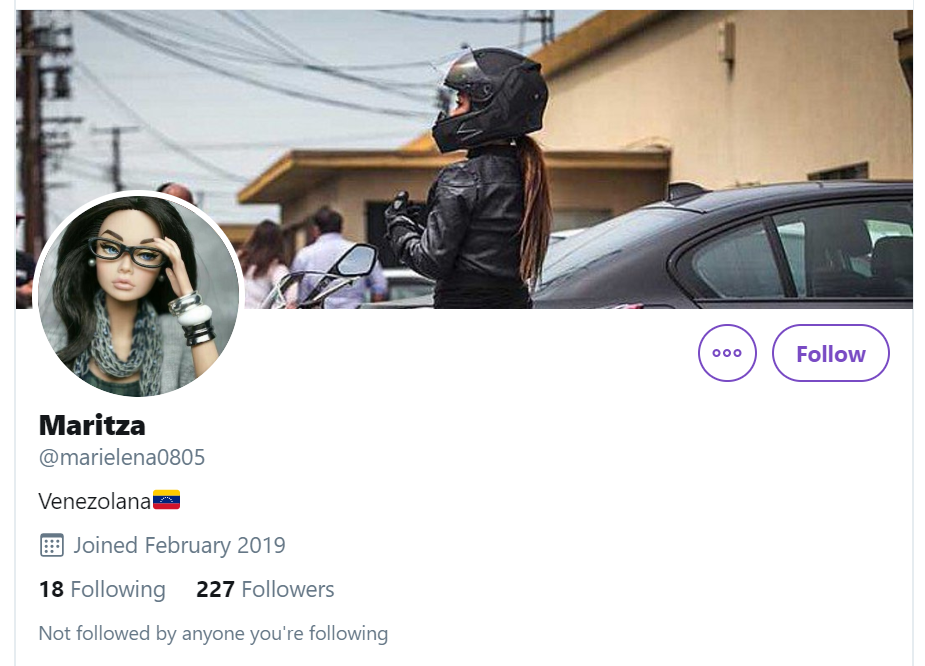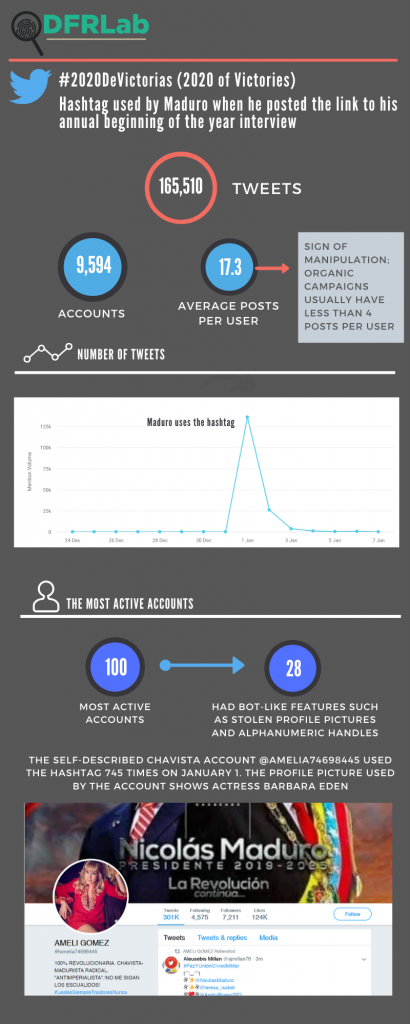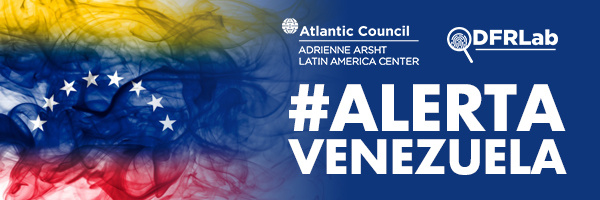#AlertaVenezuela is leading the way in identifying, exposing, and explaining disinformation within the context of one of the Western Hemisphere’s largest crises in recent history, where the fight for control of the information space will continue to pose a challenge for the region.
TOP STORY: Inauthentic activity pushed anti-Guaidó hashtags on National Assembly election day
A small group of accounts positioned two anti-Guaidó hashtags among the trending topics on Venezuelan Twitter on January 5, the day Venezuelan National Assembly representatives re-elected, with 100 votes, Juan Guaidó as leader of the body. The vote followed an attempt by a minority faction to illegitimately install regime-backed candidate Luis Parra as leader of the assembly in an effort to take over the National Assembly by force.
The regime’s attempt to install Luis Parra as the new head of the Venezuelan National Assembly was not recognized by the opposition coalition and the international community because of a series of irregularities in the vote, such as lack of quorum and the absence of Guaidó, who should have opened the session as the president of the body. In addition, Guaidó and several assembly members were forcibly blocked from entering the building by Maduro’s security forces. During the evening, the National Assembly held a new vote with a majority of members present. With 100 of 167 representatives present and 100 votes cast in his favor, Guaidó was re-elected as president of the assembly.
The DFRLab found evidence of traffic manipulation aimed at boosting the hashtags #NoQueremosAWaido (“We don’t want Waido”) and #HastaNuncaWaido (“See you never Waido”). (“Waido” appears to be a pejorative spelling alternative to “Guaidó,” likely due to the similarity of the “w” sound with that of “gua” in Spanish.) Both hashtags aimed at creating the impression that Guaidó did not have popular support and were used on the same day that Luis Parra, a regime-backed candidate, was illegally instituted to replace Juan Guaidó as the head of the National Assembly, considered Venezuela’s last democratic institution.
An analysis conducted with the social media listening tool Brandwatch revealed that, on average, users that posted #NoQueremosAWaido used the hashtag 24 times per account. The number is extremely high as, in organic campaigns in the country that the DFRLab analyzed in the past, the average number of posts per user was always less than 4. #HastaNuncaWaido was used in an average of 16 posts per user, suggesting that a group of accounts posted the hashtag multiple times to make it trend.
Both hashtags owed their trending status to the most engaged users. For #NoQueremosAWaido, the 22 accounts (10 percent of all 224 accounts) that posted the hashtag the most made up 73 percent of all mentions. For #HastaNuncaWaido, the 108 accounts (10 percent of the 1,008 total accounts) that tweeted the most generated 93 percent of total mentions to the hashtag.
The accounts that amplified the hashtag had signs of inauthenticity. @simonjrrojas (archive), for instance, posted the #NoQueremosAWaido 300 times in one hour. The account has no profile picture, a feature usually seen in automated accounts. The features were similar to those of @marielena0805 (archive), which tweeted #HastaNuncaWaido 435 times.


Other manipulations and falsehoods were seen in the Venezuelan online space on the day of the election. Maduro and state media in the country pushed their own version of the events, claiming that Guaidó did not enter the Assembly building because he knew he would not have the support needed to be reelected, when he was actually being physically barred from entering by the military outside. This narrative was advanced by state TV channel Telesur, which published Maduro’s comments without fact-checking.
Despite the regime’s attempts to influence representatives through bribery and force, Guaidó claimed he had the necessary amount of votes to be reelected. Maduro’s narrative was also amplified by politicians outside Venezuela, such as Gustavo Petro, who ran for the presidency of Colombia in 2018 and posted (archive) the information for his 3.6 million Twitter followers.
In addition, the Twitter account of National Assembly member Negal Morales, formerly in the opposition but who supported the regime in this election, posted that there were not enough votes to reach a quorum for the election to be held and that “we” had decided to “take the Assembly by force.” The post disappeared after that, and Morales claimed it was fake and had never been posted. The original tweet, nonetheless, had been archived on the internet, proving that the post was indeed tweeted by his account.
TALK OF THE COUNTRY: In the Media
“Golpe de Maduro: la dictadura bloqueó el ingreso de la oposición a la Asamblea Nacional e instaló a Luis Parra como su presidente” (“Maduro’s strike: the dictatorship blocked the entry of the opposition to the National Assembly and installed Luis Parra as its president”), published by Infobae on January 5, 2020, was shared roughly 6,647 times on Facebook and garnered 37,512 interactions, including shares, comments, and reactions across all public and private posts on Facebook. In total, posts referencing the article received 30,800 engagements on Facebook and Twitter combined. The piece describes Maduro’s forces blocking Guaidó and his supporters from entering the National Assembly building, where Luis Parra, loyal to Maduro’s regime, declared himself speaker of the assembly in a session that did not have a legal quorum.
In the national press, the article that garnered the most engagement on social media was “Con 100 votos mayoría opositora reelige a Guaidó al frente de la AN y lo ratifica como presidente encargado #5Ene” (“With 100 votes majority opposition reelect Guaidó at the head of the AN [National Assembly] and ratifies him as the Interim President #Jan5”) published by Efecto Cocuyo on January 5, 2020. The article garnered 10,095 interactions, including reactions, shares, and comments. In total, the piece was shared 2,204 times on Facebook and received 8,900 engagements on Facebook and Twitter combined. The piece describes the parliamentary session that took place in the offices of El Nacional, a Venezuelan newspaper, after representatives were blocked from entering the National Assembly building. During this session, which had legal standing given that a majority of representatives of the assembly were present, Guaidó was reelected president of the National Assembly with 100 votes.
In an interview with Brazil’s Folha de S.Paulo, Venezuelan lawmaker Juan Pablo Guanipa said that “the dictatorship’s plan to take legislative power was part of a deal with Russia.” Guanipa, a member of the opposition elected as vice president of the National Assembly on Sunday, said he learned about the information from Maduristas that started to support Guaidó in the past few months. “Russia demanded that the opposing National Assembly cease to exist to maintain support for the regime.” The interview with Guanipa was published on Tuesday, January 7, in Portuguese.
TALK OF THE COUNTRY: On Social Media

OFFICIAL STATEMENTS
U.S. Secretary of State Mike Pompeo in a Twitter (archive) post supporting Guaidó:
“Juan Guaidó personifies the Venezuelan people’s struggle to reclaim the prosperity and democracy they once enjoyed. No regime thugs, no jail cells, and no bribery or intimidation can subvert the will of the Venezuelan people.”
Peter Stano, spokesperson for external affairs in the European Union, in a statement:
These irregularities are not compatible with a legitimate election process for the President of the National Assembly. They constitute a new step in the deterioration of the Venezuelan crisis.”
Official statement from the Lima Group countries:
“[Los países del Grupo de Lima] Condenan el uso de la fuerza y las prácticas intimidatorias contra los parlamentarios de la Asamblea Nacional y rechazan toda acción orientada a socavar el apoyo a esta o a su Presidente. La votación de hoy por la mayoría parlamentaria en favor de la reelección de Juan Guaidó, ciñéndose a la Constitución y la ley, representan un rechazo a las acciones temerarias del régimen de Nicolás Maduro que buscaron impedir su designación.”
“[Lima Group countries] condemn the use of force and intimidation practices against members of the National Assembly and reject all actions directed at undermining support for the Assembly or its president. Today’s vote by the parliamentary majority in support of the reelection of Juan Guaidó, following the Constitution and the law, represent a rejection of the reckless actions by the Maduro regime that tried to stop his designation.”
OUR TEAM IN THE NEWS
Jason Marczak, director of the Adrienne Arsht Latin America Center, spoke with The Financial Times about the consequences of Sunday’s National Assembly vote, which marked the beginning of a consequential month for Venezuelans. January 10 marks the first anniversary of the start of Maduro’s second term in office, while January 23 marks a year since Guaidó was named Interim President of the country.
Subscribe to the #AlertaVenezuela newsletter
To receive future editions of the #AlertaVenezuela newsletter each week, sign up below!
